Corruption allegations levelled at senior government officials have not affected the way in which EU Member States or, indeed, the EU itself look at Malta, according to the Parliamentary Secretary for EU Funds and Social Dialogue Aaron Farrugia.
In an interview published today, Farrugia says that while there is talk of tying governance issues with EU funding, Malta has never had any such governance issues in the eyes of the EU, unlike Poland and Hungary.
The Parliamentary Secretary said it was still too early to tell what Malta’s EU funding allocation for 2021-2027 would be, adding that the government was still trying to negotiate a better package than the one offered so far.
He says the European Commission’s proposal is based on what is called the Berlin Methods, which takes the GDP per capita of each country and compares it with the EU average GDP per capita to obtain a result. This was the same method used in 2012.
Since Malta’s GDP has increased, the country will be receiving fewer funds if the Berlin Method is used. Farrugia also insisted that the scenario has changed, particularly with Brexit: “Since Britain was the second biggest contributor to the EU, the EU is now going to be left with a €13 billion annual vacuum,” he said.
The Parliamentary Secretary was also asked about the local political front, and said that his “priority right now is to convince Joseph Muscat to stay on and serve another general election and beyond.”
How important are EU funds for Malta?
They are important for every country and help namely in two spheres: the first of which is solid infrastructure, through the European Regional Development Fund, and the second is soft investment such as training, scholarships, employment, re-skilling and up-skilling. The economic growth achieved by this government and those before it is not only thanks to good practice and the creation of certain niche markets, but also thanks to EU funds.
I also think that, thanks to these EU funds, the citizens of Malta and Gozo, unlike in other countries, feel as if they are part of the European project. This is because wherever they go they can see the product of these funds – be it in roads, re-skilling, the tablets that their child uses at school, training given to nurses and doctors, MUZA, the Grand Master’s Palace: every industry and portfolio has taken advantage of EU funds.
Small and medium-sized enterprises (SMEs), for instance, have received €50 million in support whilst there has also been investment in improving the Ta’ Qali and Xewkija industrial parks. These are all projects through which workers, those looking for work and those wanting to increase their skills find EU funds backing them. EU funds have changed the face of Malta and I think Maltese and Gozitans feel more European – which is a feeling under threat in other EU countries – not just in terms of values and principles but also through their connection to the work that is supported by EU funds.
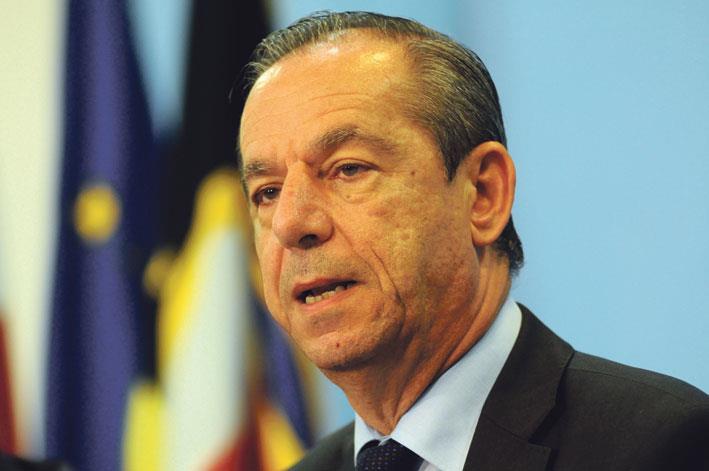
How much funding did Malta receive from the EU in the last EU Budget?
The EU Budget – known as the Multiannual Financial Framework (MFF) – is calculated every seven years. At the moment, we are in the cycle that runs from 2014 to 2020. In 2021, a new cycle will start which will then run to 2027. In early 2013, Lawrence Gonzi and his team managed to acquire around €1 billion. The circumstances at the time when the MFF was last drawn up were, of course, different than they are now: there was no Brexit, for instance, and there were different priorities, so it is difficult to compare the situation then to as it is now because it is not like-with-like. Back then, Brexit, for instance, was not on the cards. However, as Britain was the EU’s second largest contributor, the EU is now going to be left with a €13 billion annual vacuum.
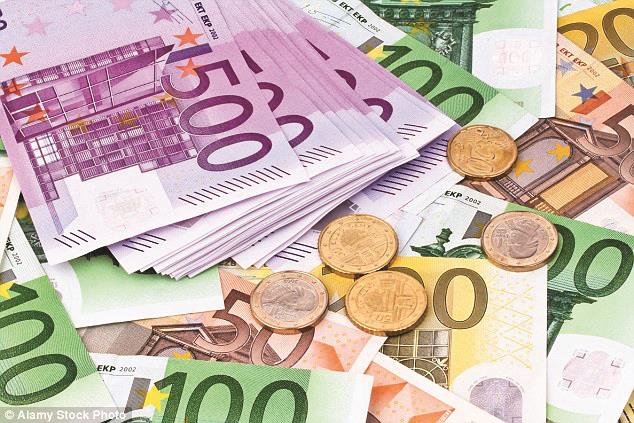
How much funding are you anticipating that Malta will receive in the next cycle?
That is an answer I cannot give you, because we are still in negotiations. So far, the European Commission has put forward its proposals for the funds based on a formula called the ‘Berlin Method’. This method takes the GDP per capita of each country and compares it with the EU average GDP per capita to obtain a result. This method was used in 2012, when Malta’s GDP per capita was found to be 75 per cent of that of the EU. Today, that comparison stands at 90 per cent. EU funds are granted to countries so that they can come closer to being the best country economically, so if big steps have already been taken – as in Malta’s case – it is obvious that the country will receive less funding.
Obviously, the Maltese government is not content with what the Commission is offering: if we were, we would have said ‘thank you very much’ and taken what was being offered to us. We are not content because we believe that Malta needs another phase of solid funding to consolidate and sustain the current economic growth. As an economist, I can tell you that five years is not long enough to say that you’re home and dry: you need a longer span of years. Therefore we are arguing that a country such as Malta, which has managed to move forward to the point where it has the highest economic growth in the whole Eurozone, it does not make sense to leave the country jogging on the spot as has happened in the case of other countries.
Our point of view is that it makes more sense to give more funding in order that economic growth can be further sustained and consolidated so that in the future it can be definitively said that Malta can move forward without a certain amount of help.
We have also made mention of elements that do not necessarily have to do with our GDP: challenges related to infrastructure, early school-leavers, climate change, Brexit and other old vulnerabilities – such as being an island state.
So far, the Commission has said that it is willing to give us funds only as per the Berlin Method, but this may change as we negotiate. Thus far, not even the maximum package ceiling per country has been agreed, with the Commission stipulating that it is ready to spend 1.1 per cent of the gross national income (GNI) levied from each country. There has been disagreement on this figure however: countries such as Belgium, Austria, Sweden, the Netherlands and Luxembourg – known as ‘the Frugals’ – want spending to be capped at one per cent of the GNI, whilst the European Parliament has been extremely ambitious and said that it wants up to 1.3 per cent of the GNI in spending. From what I understand, however, we will probably end up with something close to what the European Commission is proposing.
What is important is that an agreement on funding is reached by the autumn of this year, as anything other than that would result in the delay of our planned programmes. Such delays happened during the last period when, due to a lack of an agreement, the money from the EU arrived in 2017 rather than in 2014.
Up until then, however, the negotiations on our part will continue: we are meeting different countries and travelling to the respective presidencies to continue discussions. Where exactly we are going to land however is anyone’s guess at the moment.
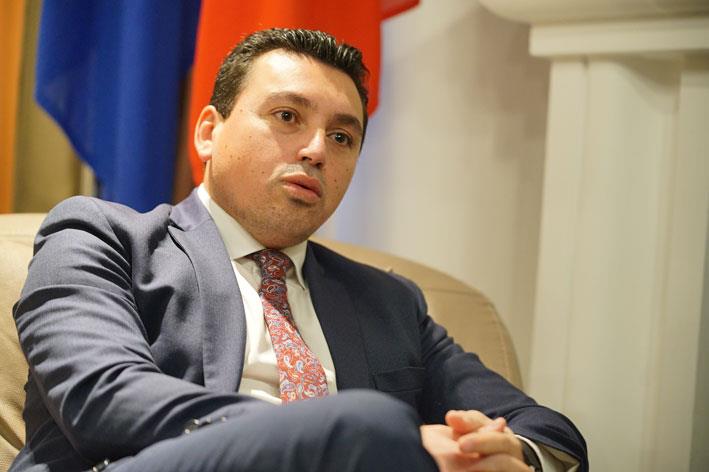
Are there any specific projects that the government has ear-marked for the use of EU funds?
In terms of the next programming period we are still quite far off from knowing where we will spend the funds as we are still negotiating how much we will receive. Once that point has been reached, we will formulate a clear operational programme to present to the European Commission, detailing how and in what fields we will spend the funds. The fields would be both in accordance with the priorities set out by the European Commission and by the country’s own priorities. Once these priorities are set, then of course the necessary calls for ministries, NGOs or any other group to apply for funding will be issued.
We have also set up a specific unit that will look into other grants that the EU offers – those for which various countries or institutions will have to compete. Meanwhile, the European Union Programmes Agency (EUPA) has also been transferred under our wing.
Is there some form of stipulation from the EU saying that you have to spend a certain percentage of the funds in a specific field, or is it totally down to the government to decide?
There will be an understanding between both sides as to how the funds should be spent. Each country has to provide an operational programme on how and in what fields the funds will be spent, whilst the Commission has its own priorities on which it would like to focus, meaning that the end result will encapsulate both of these elements.
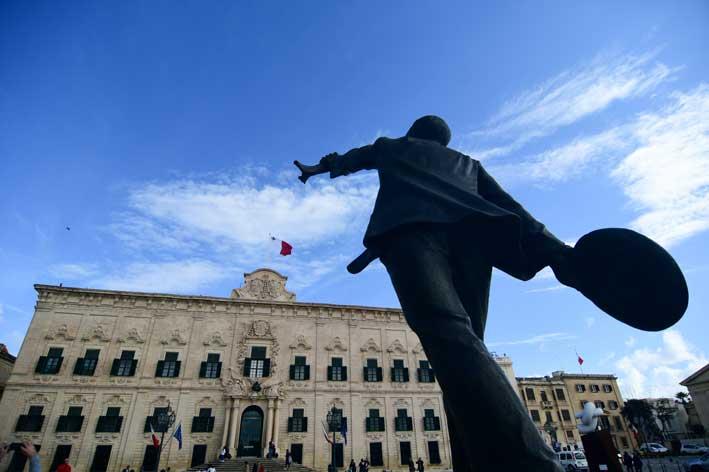
Have the corruption allegations that have been levelled against prominent members of this government affected how other countries, or the EU itself, have approached Malta?
Absolutely not. There is something of a debate, which is still in its infancy, on whether there should be measures that tie governance issues to European funds. There is no understanding as to whether the EU is moving in this direction or not; some countries are merely pushing it so far. An example of where such a mechanism could come into play, according to these countries, is in reducing the funds of those who don’t honour burden-sharing agreements regarding immigrants – or increasing the funds for those who do take immigrants.
What is certain is that Malta has never had any such governance issues in the eyes of the EU – only Poland and Hungary have had such issues levelled against them. We were never approached and told that we risked losing funding due to governance issues.
If we take the notion of good governance tied to funding – where does Malta’s line of thinking lie?
We believe that there should be a positive understanding between both sides, and that dialogue is very important. I’ve personally seen the importance of this – a country commits an infringement and, as a result of discussion, a solution is reached. Take Poland, for instance: they began at a situation where they were extremely hostile to the approach of the EU. Through dialogue, however, they found common ground to negotiate and I think that, at the end of the day, the two sides ended up coming closer together. I think that should be the approach, especially because we need to save the European project and the only way we can do that is by understanding each other. That being said, however, I am a firm believer that the values and principles of the EU project can never be impinged, and that those values and principles, set out in the 1950s when the Union was founded, can never be thrown out of the window.
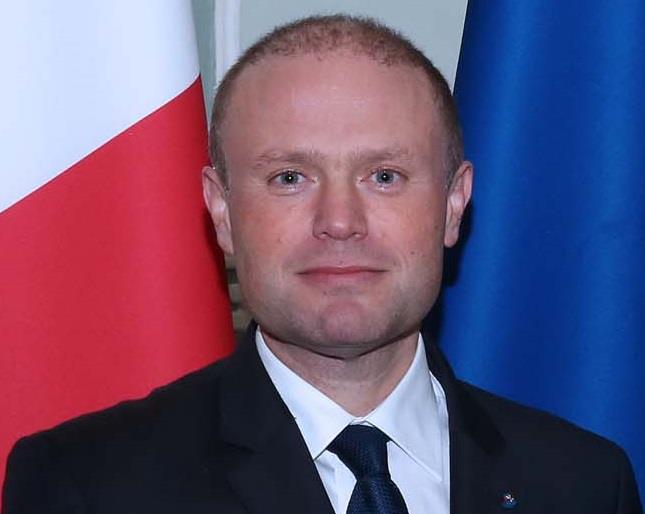
Prime Minister Joseph Muscat has, time and time again, said that this will be his last legislature in charge. We’ve seen various reports of members of the Labour Party kicking off their campaign to be elected as the new leader. What do you expect from the upcoming process to choose the Party’s new leader?
My priority – and that of many others at the moment – is to convince Joseph Muscat to stay on and serve at least another term. If we look at the way the country has changed between 2013 and now, we can say that he is on a high and I believe that he still has a lot more to offer. His vision goes beyond 2020 and so I think our work should be to convince him to stay on. Personally, in fact, I am not talking – or even thinking about – a post-Joseph Muscat era.
Hypothetically though, let’s say that the Prime Minister is convinced and that this will be his last term – we’ve seen reports of factions developing within the Labour Party – do you think that a leadership election could result in such a separation?
I think the difference between us and other parties is that our party has massive talent. If you look at the parliamentary group, you can see people with a talent that others don’t have, so I think that the parliamentary group has to stay united, irrespective of what happens. And whatever does happen, we need to keep two things in mind: the benefit of the country and the benefit of the party. We are in a situation at the moment which isn’t doing any good for the country: what worries me about the Opposition is not the revelations coming out now, but that the opposition has no mechanism for policy-making. In Simon Busuttil’s time there were policy groups on different aspects - economy, social change, the environment - and they would each publish policy papers. Maybe we didn’t agree with them, but at least there was the peace of mind that someone else was working on such matters. Today this has been thrown out of the window. My worry as a Maltese citizen – forget me as a politician – is that the Nationalist Party, due to a lack of vision and energy in providing an alternative for Malta, is weak in opposition. Therefore, given that the country has a weak opposition, we cannot afford to have a weak government, which is why I think that proper care should be given to the leadership situation so that we keep the benefit of the country and the party as the top priorities. This being said, I don’t think we are going to have issues such as this; I think we’re still in time to convince Joseph Muscat to stay on.